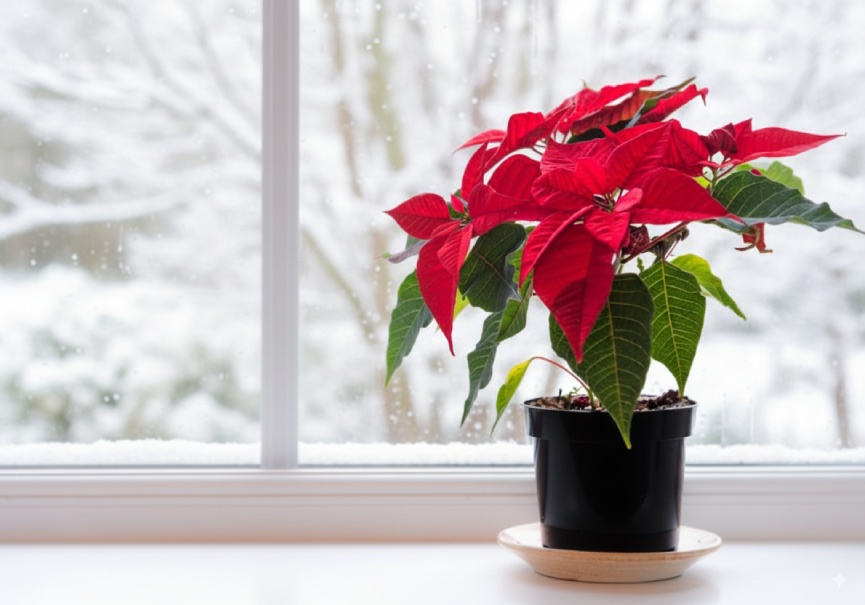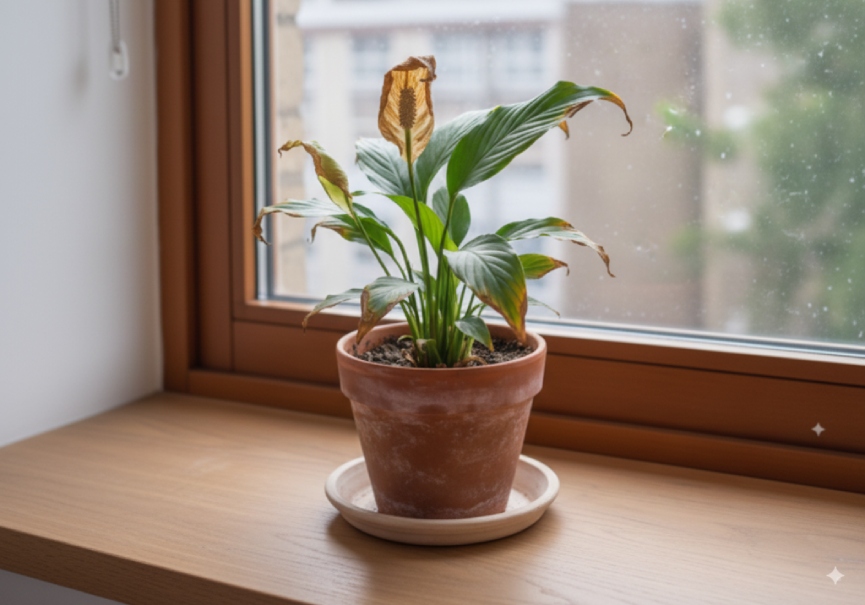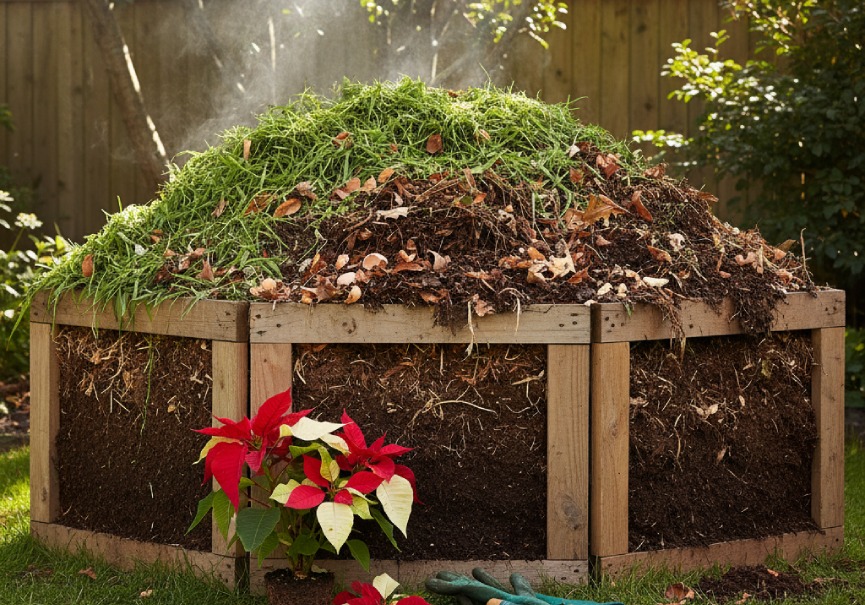Are Poinsettias Dangerous for Cats? Separating Fact from Fiction

Introduction
As the holiday season approaches, homes are adorned with festive decorations, and the enduring poinsettia plant often takes center stage. With its colourful red and green foliage, the poinsettia has become synonymous with the spirit of celebration. But, nestled among some of the tinsel and ornaments is a question that has lingered in the minds of puppy owners for years: Are poinsettias dangerous for cats? The association between poinsettias and feline health issues has given rise to a common belief that those beloved holiday plants pose a severe risk to our feline companions. However, as we delve into the science and separate fact from fiction, we discover a more nuanced reality that needs a closer look. In this article, we propose to unravel the mystery surrounding poinsettia toxicity for cats, arming pet owners with the correct know-how to ensure a safe and happy holiday season for each human being and their loved feline friends.
Poinsettias: A Popular Holiday Plant
Poinsettias have long held a cherished place in holiday traditions. With their striking red and green foliage, these plants effortlessly capture the essence of the festive season. As soon as winter arrives, poinsettias make their appearance in homes, offices, and public spaces, adding a touch of warmth and vibrancy to the surroundings. Their iconic star-shaped leaves, known as bracts, serve as a symbol of celebration and cheer. However, amidst the allure of these holiday beauties lies a concern that pet owners often grapple with: Could the presence of poinsettias jeopardize the well-being of their feline companions? Delving into the nature of poinsettia toxicity, we aim to uncover whether these ubiquitous plants truly pose a danger to our beloved cats.
True Nature of Poinsettia Toxicity
Even though some people have been worried about poinsettias being harmful to pets, looking closely at the facts shows that it’s not so scary. Poinsettias have a natural juice that’s like milk called latex. If cats eat this, it might upset their stomach a little or make their mouth and throat feel funny. But poinsettias don’t have a lot of this stuff, so it usually doesn’t make cats very sick. They might only have mild problems for a short time. To really know how much danger poinsettias pose to cats, we need to understand exactly how their juice can affect them.
Symptoms of poinsettia poisoning in a cat
Knowing the signs of poinsettia poisoning in cats is super important to keep them safe and healthy. Poinsettias can make cats feel a bit sick if they eat them, but it’s usually not too serious. Cats might drool, throw up, or have a runny tummy if they eat poinsettias. Sometimes, the plant’s sap can even make their skin red and itchy if they touch it.
The good news is that most of the time, these symptoms are mild and don’t need special treatment. Still, you should watch your cat closely if they ate poinsettias and seems uncomfortable.
If your cat ate a lot of the plant or is showing strong signs of being unwell, it’s smart to call the vet. The vet can check your cat and tell you what to do next. If your cat is having trouble breathing, shaking, or acting very strange, it’s a sign you should go to the vet right away. But don’t worry too much, because poinsettia poisoning is usually not too serious, and most cats feel better with a little care.
To keep your cat safe, put poinsettias where your cat can’t get to them. You can also have other plants that are safe for cats around your home during the holidays. Remember, if your cat gets sick from eating poinsettias, it’s not a big emergency, but it’s still best to be careful and get help if needed.
Other Holiday Plants and Their Risks
Even though poinsettias have been talked about as maybe not being safe for cats, there are actually other holiday plants that are even more dangerous. Plants like mistletoe, holly, and some kinds of lilies can really hurt cats if they eat them. Mistletoe, for example, has things in it that can make cats really sick and even hurt their heart. Holly berries and certain lilies are also known for causing big problems. When we look at how risky poinsettias are compared to these other holiday plants, we can better understand how safe it is for our cats during the holidays.
Preventive Measures and Pet Safety
Protecting our furry companions during the holiday season involves a combination of awareness and responsible pet ownership. When it comes to poinsettias and cats, a few precautionary measures can go a long way in ensuring their well-being:
1. Placement Matters: Position poinsettias in areas that are inaccessible to curious cats. Consider elevated surfaces or rooms that your feline friend doesn’t frequent.
2. Supervision: While poinsettias have low toxicity levels, it’s wise to supervise your cat around these plants to prevent any unwanted nibbling.
3. Distract with Alternatives: Provide engaging toys and treats to divert your cat’s attention away from plants altogether.
4. Consult a Vet: If you suspect your cat has ingested poinsettia leaves or any other potentially harmful plants, consult your veterinarian for guidance.
5. Opt for Artificial: If you’re concerned about your cat’s interaction with live plants, artificial poinsettias can provide a festive touch without any health risks.
By combining these preventative measures with a clear understanding of poinsettia toxicity, you can create a joyful and safe environment for both your feline friend and the holiday spirit.
Addressing Misinformation
Misinformation often plays a significant role in perpetuating fears and misconceptions surrounding poinsettias and their potential danger to cats. It’s essential to counter these myths with accurate information from reliable sources:
1. Source Credibility: Rely on reputable veterinary organizations, botanical experts, and scientific research when seeking information about poinsettia toxicity. This ensures you’re getting accurate and evidence-based insights.
2. Understanding Severity: Differentiate between mild irritations and severe reactions. Accurate information can help you grasp the level of risk associated with poinsettias for cats and make informed decisions.
3. Myth Dispelling: Engage in conversations with fellow pet owners to share accurate information and debunk misconceptions. Educating others can help prevent unnecessary alarms.
4. Promote Fact-Checking: Encourage the practice of fact-checking before sharing information on social media or in casual conversations. A responsible approach to disseminating information can help curb the spread of myths.
5. Be Informed: Empower yourself with knowledge about various holiday plants and their actual risks to cats. This way, you can confidently address any concerns that arise.
By actively addressing and dispelling misinformation, we can foster a community of pet owners who make informed choices about poinsettias and other potential hazards during the holiday season.
What happens if my cat eats poinsettia?
If you find out that your cat has eaten a poinsettia, here’s what you can do to help them:
1. Stay Calm: First, don’t panic. While poinsettias can cause some discomfort, they are generally not highly toxic to cats.
2. Monitor Symptoms: Keep an eye on your cat for any signs of discomfort. Symptoms might include drooling, vomiting, diarrhea, or skin irritation if they touch the plant’s sap.
3. Call the Vet: If your cat shows severe symptoms, ate a large amount of the plant, or if you’re worried, call your veterinarian. They can provide advice based on your cat’s specific situation.
4. Offer Water: Make sure your cat has access to fresh water. It can help ease any digestive upset caused by the plant.
5. Keep the Plant Away: Remove the poinsettia from your cat’s reach to prevent them from eating more of it.
6. Comfort and Observation: If your cat is not showing severe symptoms, just provide comfort and keep an eye on them. Most of the time, mild symptoms will pass on their own.
7. Avoid Home Remedies: Don’t try home remedies without consulting a vet. Some solutions could do more harm than good.
8. Prevention: To avoid such situations in the future, keep poinsettias and other potentially toxic plants out of your cat’s reach. Consider having safe, pet-friendly plants around your home instead.
Remember, even though poinsettias can cause discomfort, they are usually not life-threatening to cats. If you’re concerned about your cat’s health, it’s always best to consult a veterinarian for guidance.
Conclusion
Poinsettias are generally considered mildly toxic to cats, but severe poisoning is rare. Cat owners should be aware of potential risks and take precautions to prevent ingestion. By practicing responsible plant placement and closely monitoring your cat, you can enjoy poinsettias and other holiday decorations with confidence.
FAQ
1. Can poinsettia ingestion be fatal for cats? Ans:- No, severe poinsettia poisoning leading to fatality is highly unlikely.
2. What if my cat shows severe symptoms after consuming poinsettias? Ans:- While severe reactions are rare, contact your veterinarian if your cat experiences concerning symptoms.
3. Can cats experience skin irritation from poinsettias? Ans:- Yes, contact with poinsettia sap might cause mild skin irritation in cats.
4. Can I keep poinsettias indoors if I have cats? Ans:- Yes, you can keep poinsettias indoors, but place them where cats cannot easily reach them.
5. Are there any holiday plants that are completely safe for cats? Ans:- While no plant is entirely without risk, options like spider plants, African violets, and Christmas cacti are considered safer choices for homes with cats.






